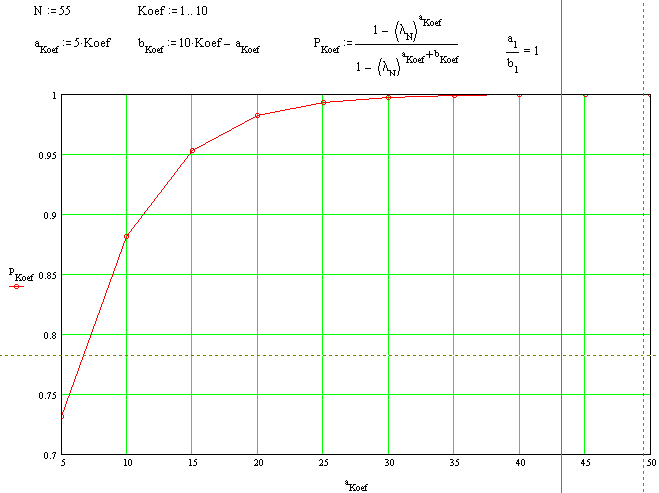You are missing trading opportunities:
- Free trading apps
- Over 8,000 signals for copying
- Economic news for exploring financial markets
Registration
Log in
You agree to website policy and terms of use
If you do not have an account, please register
Свопы налоги :))
Positive taxes? You whistle, whistle, whistle, don't whistle.
и никакой неправильности монеты привлекать не следует.
А то странная монета - полгода неправильна в одну сторону, а потом в другую.
Could it attract?
What I see on quotients - channels hold for a while (one wrong coin), then jump to another (one more), then to a third (one more)... etc.
Sometimes (quite often) there is a return to one of the recent coins. In other words, we have a process of jumping to the next coin in the set.
There are reasonable questions to ask: like what is the lifetime of the next channel? Is there any correlation between the slope of the current channel and the next? And so on.
If not to accept such ("wrong-monetary") hypotheses, this topic will turn out to be another "pseudo-scientific bollocks" (imho).
Because more has been sucked out of the "true random" randomly wandering the market than therewas. ;)
Yes - who cares and taxes are sometimes RETURNED, :)) And then they are positive - dickhead, uneducated. His taxes can't be positive.
Swaps are shit, you don't need to see them. :))
Неа - у меня видение еще до конца не сформировалось - :))
Still, no need to quarrel - let's be constructive!
Timbo, didn't I tell you.... :))))
Still, there's no point arguing for nothing - give us some constructive stuff!
Yep - I'm NOT swearing - I'm REALLY answering, it's alas these guys are hooked with anger so they bark - but my criteria is simple as in the movies - remember - showmani! :))
Да - какая разница и налоги ингода ВОЗВРАЩАЮТ, :)) И тогда они положительные - долбоеб, не образованный. Налоги у него не могут быть положительные.
That's exactly what they do, i.e. they first take too much, and then they give some of it back. So the tax is still negative, just a little less. You've whistled again.
:))) Timbo - I know - you don't even know the correct formula for calculating swaps, but there you go. Taxes taken - 100, refunded 50, then the allowance paid 200 and that's the positive. :)
Why are you obsessed with swaps? You can make a profit on swaps. But that's got nothing to do with it.
Timbo - you're a poorly educated one - you hear the bell but you don't know where it is. :))
Random wandering. :))) What else can you think of? One theorist says that the event is bound to happen. Others, not understanding the nature of the event, see it by wandering. You lazy bastards... :)
Таки может привлечь?
Чего вижу на котирах - каналы держатся некоторое время (одна неправильная монетка), затем скачком меняются на другой (ещё одна), затем на третий (ещё).. и т.д.
Иногда (весьма часто) происходят возвраты к одной из недавних монеток. Т.е. имеем процесс скачкообразных переключений на очередную монетку из набора.
That's what I was talking about. The new factor acting on the market is the new "curve" of the coin.
There are sensible questions to ask: What is the lifetime of the next channel? Is there a relationship between the slope of the current channel and the next? And so on.
Are they reasonable? )))
If not to accept such ("wrong-coin") hypotheses, this topic will turn out to be another "pseudoscientific hollow" (imho).
IMHO. But not "near-scientific" - just "scientific" - but "near-market". Or rather - what to be ashamed of - "near-market"! )))
For more has already been sucked out of "true-random" random wandering in the market than therewas. ;)
Oh, yeah. The second most popular topic, it seems, after not-say-what.
===
But still, it's not the same... IMHO Bazinga!!!)) // I don't know anything about that. And there's no need for it in practical terms. I live somehow...
- You have deprived the world of the proof of Goldbach's hypothesis! - The world hasn't changed...
Amen. ))))))))))))
в простейшем случае, если например в качестве тренда использовать неправильную монетку (вероятность орла<> вероятности решки), то задача сводится к "Задаче о разорении". Конечные формулы для рассчета вероятностей выигрыша одного из игроков, а в нашей постановке вероятности достижения TP и SL выведены например https://www.mql5.com/go?link=http://ilib.mirror1.mccme.ru/djvu/bib-kvant/teorver.htm стр.129-130
The results of the "Ruin Problem" do not intuitively understand a certain point.


This is the dependence of probability of winning (player a) in the game on probability of winning in ONE game when a = 9, b = 1:
If player a has a 55% probability of winning in ONE game, with both players having the same amount of money, then player a's probability of winning in the game depends on the amount of money:
It turns out that when the probability of winning in a transaction > 50%, the probability of ruining the other player increases with the amount of money both players have. Even when they have the same amount of money.